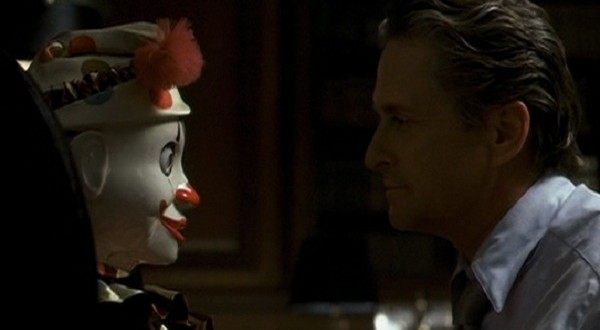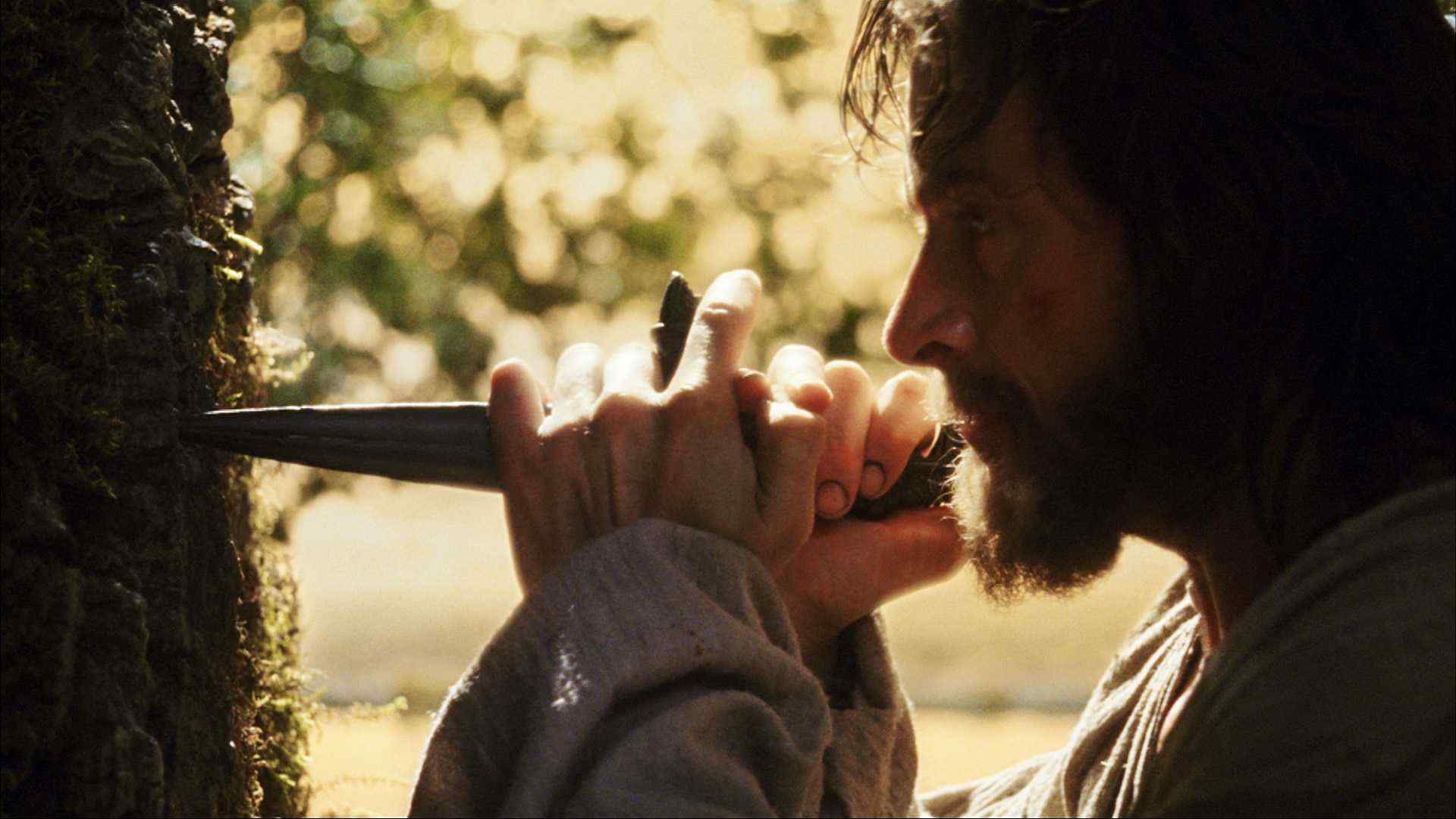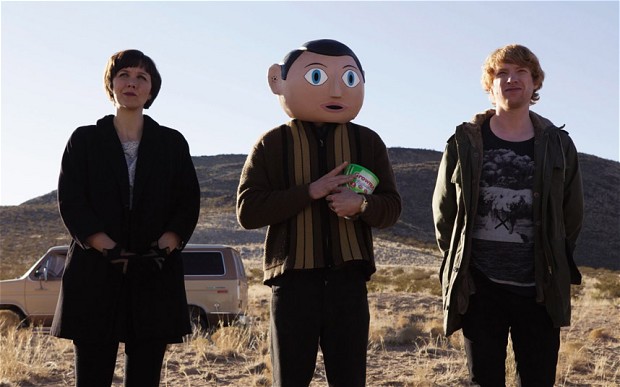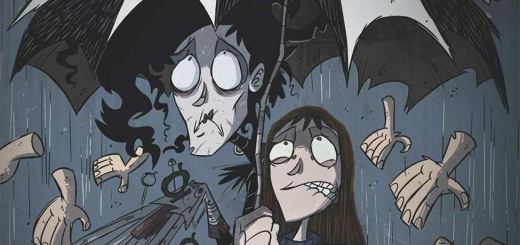The difficulty in counting down films so clearly influenced by Kubrick is that there are certain directors who are just tailor-made for it. So, you start to run into situations like this section of the list, where two directors have two films and two other directors had a film mentioned in the last section. But that’s the way it goes. Much of Kubrick’s style isn’t reflected in the work of, say, Todd Phillips. Or Todd Haynes, for that matter.
 30. Inception (2010)
30. Inception (2010)
Directed by Christopher Nolan
What makes it Kubrickian? As directors go, few rival the sense of complete control over his films like Christopher Nolan, famous for his obsessive attention to detail, much like Kubrick. With Inception, Nolan dialed up the control, creating multiple worlds set within dream landscapes, painting incredibly stunning shots and moments. Focusing on Cobb (Leonardo DiCaprio) and his team of dream surveyors, Inception is a mind warp of dream within a dream within a dream and so on, each creating a new world for the protagonist to navigate. His team is sent in not to read someone’s mind, but to plant an idea into someone’s mind, previously thought to be impossible. The concepts behind Inception are incredibly complex, while Nolan depends much more on his ability for viewers to unravel the mystery, rather than relate to the characters, who are not exactly fully realized. While Kubrick did take us into the human psyche, he also stepped back sometimes to let the jigsaw puzzle he created make a bigger impact.

29. The Game (1997)
Directed by David Fincher
What makes it Kubrickian? Well, if Nolan shows flashes of Kubrick-influenced work, Fincher is pretty much his second coming, famous for more retakes than we can imagine. The control freak that is David Fincher began to come into his own in 1995 with Se7en and upped the ante again with a less focused, but admirably constructed mystery with The Game. The game referred to in the title is a birthday present for a San Francisco financier name Nicholas (Michael Douglas) from his transient brother Conrad (Sean Penn) that plays out like a live-action video game, where Nicholas can never tell what is and what isn’t part of the charade. At its heart, The Game is nothing more than an action film with a sinister twist, but the way Fincher handles his camera – even at this early stage in his career – is decidedly Kubrickian, concentrating on every detail on screen at any given time. He would clearly improve upon his efforts going forward (his source material alone would vastly improve), but Fincher’s steady hand turned what could have been a train wreck into, at the very least, a somewhat engaging drama.
 28. Gravity (2013)
28. Gravity (2013)
Directed by Alfonso Cuarón
What makes it Kubrickian? The vastness of space and the importance of silence was done best by Kubrick; Cuarón followed suit. This year’s seven-time Oscar winner is probably the most ambitious film ever to be set entirely in space, but it certainly takes plenty of cues (as do most sci-fi films) from Kubrick’s masterpiece 2001: A Space Odyssey. While 2001 was a thought-provoking story of mammoth proportions, Gravity managed to take the solitary feeling space creates and a develop a character study (however weak the script). Gravity is a far less complicated film, but from a design and technical standpoint, it’s a direct descendant of Kubrick’s opus. Most importantly, the way Cuarón and his team handled the music, sound design, and the need for those quiet moments to allow the viewers to breathe is a page out of Kubrick’s book. Kubrick didn’t make films meant to be blockbusters, but money-makers like Gravity know how to use his influence to create films that are bigger than just popcorn movies.
 27. The Fountain (2006)
27. The Fountain (2006)
Directed by Darren Aronofsky
What makes it Kubrickian? It’s Aronofsky again, this time taking those parables of life and the complexity of it all and applying it on a much larger, somewhat unfocused canvas. The Fountain spans a millennium, taking leads Hugh Jackman and Rachel Weisz and casting them in three separate roles, all of which are connected. The first (past) gives us Jackman as a conquistador looking for the “tree of life” to rescue his queen; the second (present) is Jackman as a researcher trying to find a cure for his dying wife from trees; the third (future) is Jackman as a galactic traveler looking for a way to spend eternity with his lover as he hurdles toward a dying star. Aronofsky is painting a much grander picture about love, death, and faith, paralleling the journeys as ways to create a connective tissue between all these eras. It’s probably Aronofsky’s most Kubrickian film, dealing with much greater themes than his small-scale “danger of obsession” movies. That theme does, however, drive this much weightier, much more baffling entry. The Fountain is Cloud Atlas before there was Cloud Atlas…but without the gimmicks (for better or worse).

26. One Hour Photo (2002)
Directed by Mark Romanek
What makes it Kubrickian? It’s a horrifyingly cold and methodical look at the psychological makeup of a man with clear sociopathic tendencies, starring Robin Williams in his most unsettling dramatic performance. Sy (Williams) is a photo technician at a store than develops pictures in, you guessed it, one hour. He’s a lonely man who lives in a sterile environment, his only joy going through the moments he helps reccreate on film, his favorite being those of the Yorkins, a young family he has become obsessed with. Romanek’s film is barren – a quiet, understated film about jealousy and voyeurism, centering on a man who does not have the psychological capacity to carry on a healthy social life, much less gain inclusion into a “normal” family’s everyday life. Garnering comparisons to Eyes Wide Shut and The Shining, One Hour Photo meshes the insecurity of Tom Cruise’s role in the former with the unbalanced behavior of Jack Nicholson’s work in the second. Robin Williams had given less flamboyant performances before, but his work in Romanek’s film revealed something more (or less).
 25. The Prestige
25. The Prestige
Directed by Christopher Nolan
What makes it Kubrickian? While Inception certainly drummed up the physical appearance of the world, Nolan’s The Prestige dove deeper into that psychological soup that lays within every character in the film. Upon the film’s release, it was lumped into a battle of “magician films” against The Illusionist, a far less ambitious film. This story focuses on rival magicians in London named Robert (Hugh Jackman) and Alfred (Christian Bale) and the concept of how a magic trick works in three parts: the pledge, the turn, and the prestige. While the film’s psychological themes can be Kubrickian in nature, what’s most telling about the film is the set and production design and how it mimics plenty of other Kubrick works, from long hallways that seem to never end to cinematographer Wally Pfister’s use of color as a set piece. Much like Kubrick does, even in films that are meant to be set in a time and place (e.g. Barry Lyndon), The Prestige feels like it transcends its era. It could’ve been a simple story of betrayal, jealousy, and competition, but Nolan has become a true magician that never reveals his tricks, filling a mold originally cast by Kubrick.

24. Brazil (1985)
Directed by Terry Gilliam
What makes it Kubrickian? Gilliam’s best work is typically his more Kubrickian, and this is one of his best, if not his greatest achievement. Meshing the dystopian film with satire, Brazil is basically George Orwell’s 1984, but as a black comedy (and no “Big Brother”), starring Jonathan Pryce as a “technocrat” in a world that has more meaningless bells and whistles that it knows what to do with. When Sam (Pryce) steps in to free a man that was wrongfully arrested, Sam meets the woman of his (literal) dreams, Jill (Kim Greist), only to be blamed for a string of terrorist attacks, endangering Sam and Jill as they try to hide from the bureaucracy. Outside of the themes and the darkened cinematography, comparing Brazil to movies like 2001 and even Dr. Strangelove (which Gilliam claims Kubrick wanted him to direct a sequel to; or so he was told), Gilliam has always been a stark defender of Kubrick and his work, putting him on a pedestal while simultaneously criticizing other filmmakers, like Steven Spielberg, for their lack of attention to detail. Gilliam (and Kubrick) set out to make films that forced audiences to think. None of Gilliam’s work will bore into your brain as much as this underrated trip through retro-future.
 23. Donnie Darko (2001)
23. Donnie Darko (2001)
Directed by Richard Kelly
What makes it Kubrickian? Richard Kelly’s work tends to shoot for Kubrickian themes, this one being his closest shot. Donnie Darko is a movie filled with dark themes, psychological paradoxes, and some of those patented “Kubrick stares.” Starring Jake Gyllenhaal as the film’s title character, Donnie is a high school student who begins to have visions after a plane engine falls on his house, nearly killing him. Donnie is clearly schizophrenic, but visions of a doomsday bunny named Carl and his obsession with time travel and wormholes make him an outcast at school and with his own family. The debut film from Kelly is deliberately confusing – an attempt to build a web of inconsistency and ask the viewers to answer questions that may or may not have answers. Can Donnie travel through time? Is this all a dream? Does any of it even matter? Questions like these filled Kubrick’s films, though typically in a more organized fashion. While Donnie Darko is certainly not as detail-oriented as any of Kubrick’s films, it’s still a reminder of how much a film can force you to think and how the reality we see on screen may not be the ones that the protagonist sees.

22. Fight Club (1999)
Directed by David Fincher
What makes it Kubrickian? Its existential themes mix with A Clockwork Orange‘s “ultraviolence” to create one of the best studies of film masculinity in the last 25 years. Based on the novel by Chuck Palahniuk, David Fincher’s Fight Club centers around an office worker (Edward Norton) who can’t sleep and has a strange addiction to support groups. In his mundane, yet unstable life, he meets an uninhibited soap maker named Tyler (Brad Pitt) who enlists his help to begin an underground fight club that proves to be a jumping off point to something much, much bigger. As we discussed before, Fincher’s attention to detail is staggering, even in a film that feels as chaotic as this. It’s a film about power – over oneself, over one’s environment, over that voice in your head that wants to turn you to the “dark side.” Not only is it full of violence, but it also focuses on that fundamental question also at the core of A Clockwork Orange: should we all have the freedom of choice, even if the choice we make damages ourselves, others, and the world around us? Fight Club is story of an organization that Alex DeLarge and his droogs would’ve created in the barren Los Angeles landscape, too.
 21. Enter the Void (2009)
21. Enter the Void (2009)
Directed by Gaspar Noé
What makes it Kubrickian? If you made a two-and-a-half hour movie out of just the psychedelic trip at the end of 2001: A Space Odyssey, this would be it. Directed by French auteur Gaspar Noé, Enter the Void is an uncomfortable journey through neon-lit Tokyo through the eyes of a drug dealer having an out-of-body experience. Oscar (Nathaniel Brown) is a dealer living in Tokyo, supporting he and his sister by selling drugs. When he goes with his friend to make a deal, they stop at a bar called The Void, only to get jumped by the police. Oscar is shot and, as far as the audience can tell, dies. The rest of the film is still seen through Oscar’s eyes, who is now going through his own life, watching it flash before his eyes in chronological order. While the look and feel of Enter the Void certainly fits the Kubrick mold, the acting is what puts it over the top. In some Kubrick films, just like in this one, the acting comes off a little wooden and unfeeling, purposefully done to create a disconnect between the audience and the protagonist(s). It’s a feverish dream with a nausea-inducing score – Stanley would have approved.
— Joshua Gaul





